
Amandus Augustus Abendroth was a German jurist and mayor of Hamburg.

Carl Wilhelm Kaisen was a German politician from the Social Democratic Party of Germany (SPD). Between 1945 and 1965 he was the 2nd President of the Senate and Mayor of the Free Hanseatic City of Bremen. In 1958/59 he served as the 10th President of the Bundesrat. He became a symbol of the German reconstruction in Bremen after 1945.
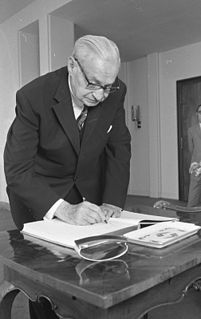
Herbert Weichmann was a German lawyer and politician and First Mayor of Hamburg (1965–1971). In his position as mayor of Hamburg, he served as President of the Bundesrat (1968–1969).
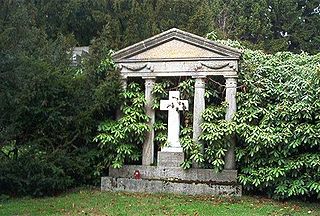
Ohlsdorf Cemetery in the Ohlsdorf quarter of the city of Hamburg, Germany, is the biggest rural cemetery in the world and the fourth-largest cemetery in the world. Most of the people buried at the cemetery are civilians, but there is also a large number of victims of war from various nations. The cemetery notably includes the Old Hamburg Memorial Cemetery with the graves of many notable Hamburg citizens.
Carl Wilhelm Petersen was a German lawyer, politician for the German Democratic Party and First Mayor of Hamburg.
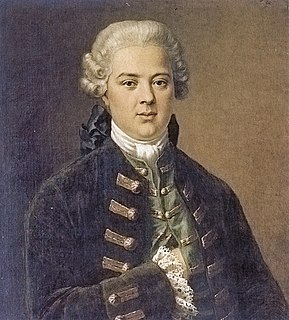
The Hanseaten is a collective term for the hierarchy group consisting of elite individuals and families of prestigious rank who constituted the ruling class of the free imperial city of Hamburg, conjointly with the equal First Families of the free imperial cities Bremen and Lübeck. The members of these First Families were the persons in possession of hereditary grand burghership of these cities, including the mayors, the senators, joint diplomats and the senior pastors. Hanseaten refers specifically to the ruling families of Hamburg, Lübeck and Bremen, but more broadly, this group is also referred to as patricians along with similar social groups elsewhere in continental Europe.
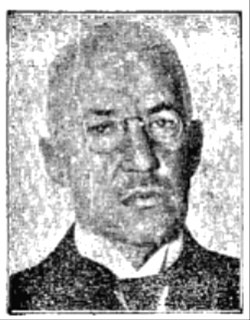
Rudolf Adolf Wilhelm Ross was a German teacher, politician of the Social Democratic Party (SPD), member of the Hamburg Parliament and first Mayor of Hamburg.

Joh. Berenberg, Gossler & Co. KG, commonly known as Berenberg Bank and also branded as simply Berenberg, is a Hamburg-based multinational full-service investment bank.

Jacob Benjamin Wegner was a German-Norwegian business magnate, estate owner and timber merchant.
Carl Vincent Krogmann was a German banker, industrialist and Nazi Party politician. He served as Mayor of Hamburg for the majority of the Nazi period of government.

The Berenberg family was a Flemish-origined Hanseatic family of merchants, bankers and senators in Hamburg, with branches in London, Livorno and other European cities. The family was descended from the brothers Hans and Paul Berenberg from Antwerp, who came as Protestant refugees to the city-republic of Hamburg following the Fall of Antwerp in 1585 and who established what is now Berenberg Bank in Hamburg in 1590. The Berenbergs were originally cloth merchants and became involved in merchant banking in the 17th century. Having existed continuously since 1590, Berenberg Bank is the world's oldest surviving merchant bank.

Amsinck is a Dutch-origined patrician family whose members were prominent merchants in multiple countries including the Netherlands, Hamburg, Portugal, England, France, Hanover, Holstein, Denmark, Suriname and India. From the 17th century the Hamburg branch of the family formed part of the city-state's ruling class, the Hanseaten or hereditary grand burghers, who enjoyed legal privileges in Hamburg until 1918. Amsinck has been one of Hamburg's great business families over many centuries, and its members reached the highest positions in Hamburg society, including as senators and head of state. A branch of the family were large plantation owners in Suriname. The Hamburg branch retained a Dutch identity for centuries, often intermarrying with other Dutch-origined patrician families.
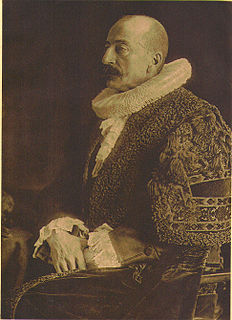
Johann Heinrich Burchard was a Hamburg lawyer and politician who served as senator and First Mayor and President of the Senate of the Free and Hanseatic City of Hamburg.

Max Garlieb August Predöhl was a Hamburg lawyer and politician. He served as Senator and First Mayor of Hamburg.
Klaus Brockhoff is a German economist, organizational theorist and Emeritus Professor at the University of Kiel.
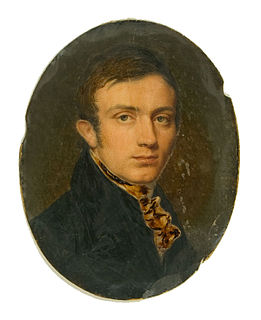
Johannes Amsinck was a German businessman and philanthropist.

The Gossler family, including the Berenberg-Gossler branch, is a Hanseatic and partially noble banking family from Hamburg.

Carl Friedrich Petersen was a Hamburg lawyer and politician, who served several terms as First Mayor of Hamburg. He was a Hamburg senator from 1855 until his death.
Motz is a surname. Notable people with the name include:
Martin Glaum is a German economist and author and has held the Otto Beisheim Endowed Chair of International Accounting at the WHU-Otto Beisheim School of Management since 2014. Before this he held the Chair of International Management, Accounting and Auditing at the University of Giessen in Giessen, Germany. Until 1999 he was a Professor of International Management at the Viadrina European University in Frankfurt (Oder). He was born in Wetzlar, Germany.














